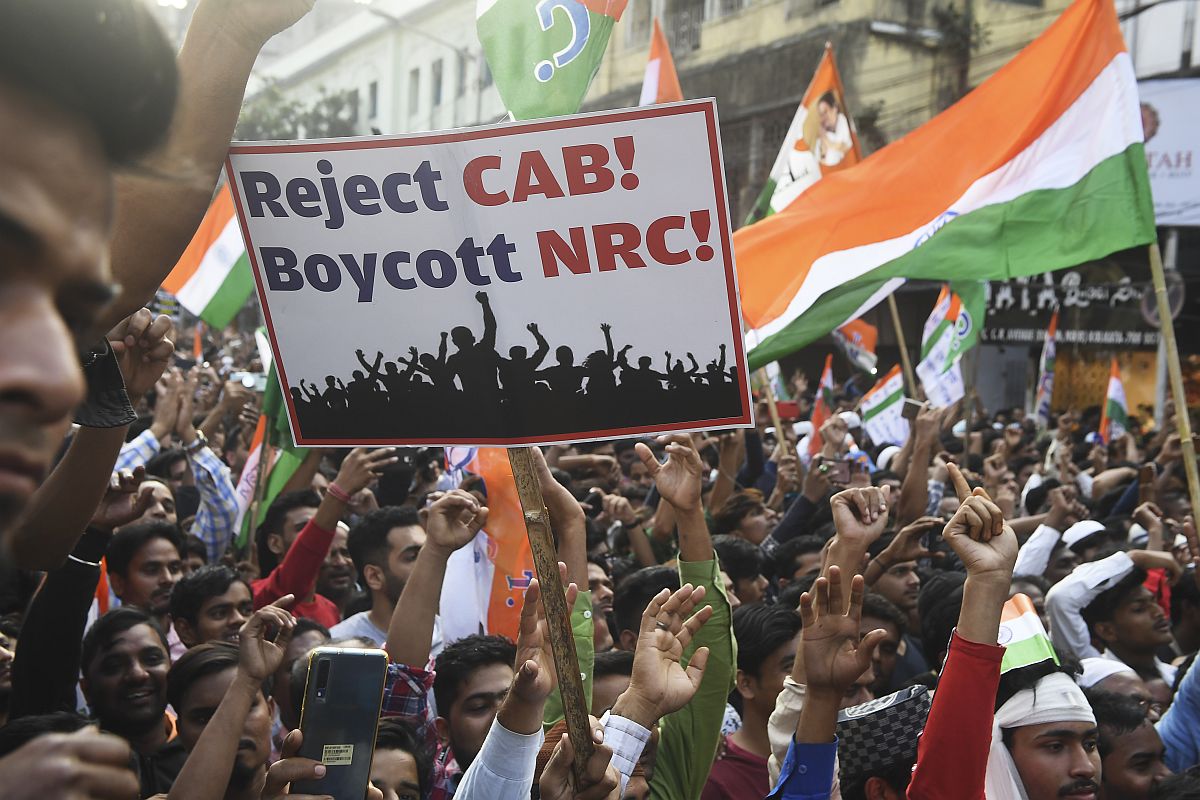Ahead of EVM-VVPAT verification case order, SC calls ECI officer to explain queries
The bench of Justices Sanjiv Khana and Dipankar Datta had last week reserved its verdict on a batch of public interest litigations in the matter.
Protests have erupted across the nation against the Citizenship Act with violence and arson emerging from different parts of Delhi, West Bengal, Uttar Pradesh and the northeastern states of Assam, Tripura and Manipur.

Supporters and activists of Trinamool Congress participate in a mass rally to protest against the Citizenship Amendment Act (CAA). (Photo: AFP)
The Supreme Court on Wednesday issued a notice to the Government on a batch of pleas challenging the Citizenship (Amendment) Act, 2019.
The apex court will take up the petitions challenging the constitutional validity of the controversial law on January 22.
A bench of Chief Justice SA Bobde, Justice BR Gavai and Justice Surya Kant refused to stay the implementation of the Citizenship (Amendment) Act, 2019, saying it will hear the pleas in January next year.
Advertisement
Declining to stay the implementation of the Citizenship (Amendment) Act, the three-judge bench said: “We will have to see whether the Act has to be stayed”.
Protests have erupted across the nation with violence and arson emerging from different parts of Delhi, West Bengal, Uttar Pradesh and the northeastern states of Assam, Tripura and Manipur.
The campus protests have gained massive support across the nation after Delhi Police tear-gassed students of Jamia Millia Islamia University on Sunday night without any permission from the campus authorities.
The protest against Citizenship Act turned violent on Sunday in the evening in southeast Delhi’s Mathura Road after the agitators resorted to arson and police used force practically turning the area into a war zone, leaving nearly 60 people including students, cops and firefighters injured.
Following police action at Jamia Millia, protests also erupted at Aligarh Muslim University, Hyderabad’s Moulana Azad National Urdu University, Banaras Hindu University and Lucknow’s Nadwa College.
According to the new law, members of Hindu, Sikh, Buddhist, Jain, Parsi and Christian communities, who have come from Pakistan, Bangladesh and Afghanistan, till December 31, 2014, facing religious persecution there, will not be treated as illegal immigrants but given Indian citizenship.
The opposition parties have termed the legislation as “unconstitutional” which “is aimed at diverting attention from the burning issues of the common people”.
Meanwhile, the ruling BJP has said that agitations against the Citizenship (Amendment) Act (CAA) are 100 per cent politically sponsored as some parties are trying to draw a wedge between Hindus and Muslims and that “no citizen needs to fear from NRC and CAA”.
Meanwhile, the Supreme Court on Tuesday said it would not rely on either news reports or newspapers while arriving at judicial decisions in cases connected with violent protests against the Citizenship Amendment Act (CAA).
The apex court also refused to set up a committee of a retired apex court judge to inquire into the allegations of police atrocities against students and incidents of violence during protests against CAA at Aligarh and Jamia universities and asked the petitioners to approach respective high courts with their grievances.
Advertisement